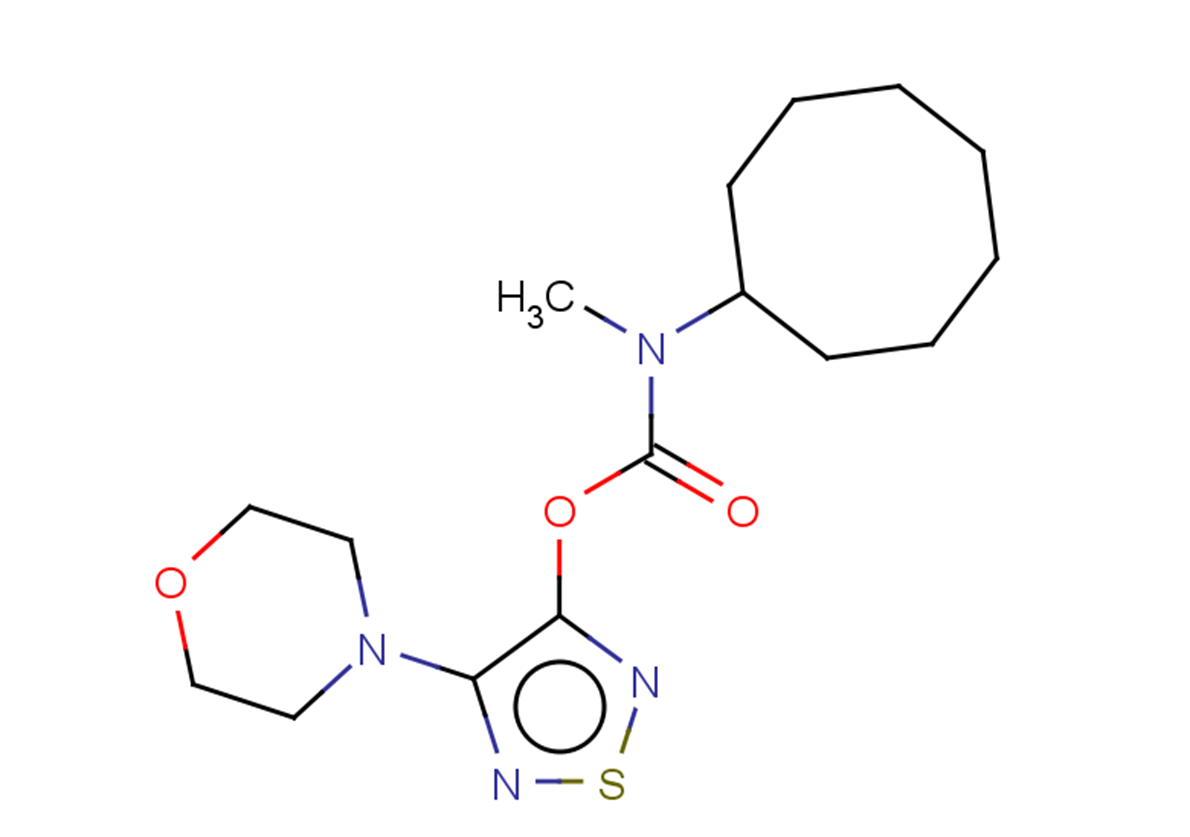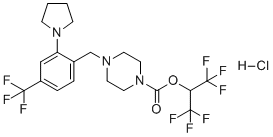MAGL
MAGL is an enzyme that belongs to the serine hydrolase family. It participates in lipid metabolism and in the regulation of the ECS. This enzyme preferentially catalyzes the hydrolysis of monoglycerides (versus di- or triglycerides) into glycerol and fatty acids and specifically degrades the endocannabinoid 2-AG, turning into the main enzyme responsible for the control and regulation of the levels of this endocannabinoid. This catalytic activity has led to a huge interest in its structural characterization, its function, and in the development of new compounds able to regulate its activity. They consisted of 303 amino acids with a molecular weight of 33.4 kDa. A high sequence similarity was observed among the three enzymes: 92% identity between rat and mouse and 83.8 and 84.2%, respectively, for mouse and rat with human MAGL. The catalytic site is formed by the triad Ser-Asp-His commonly found in the serine hydrolase family, which in the human MAGL is constituted by Ser122, Asp239, and His269. In cancer cells, MAGL hydrolyses monoacylglycerols into free fatty acids maintaining tonically elevated levels of these molecules, which are further converted into different pro-tumorigenic lipids such as lysophospatidic acid (LPA), PGE2, lysophosphatidyl choline, lyosphosphatidyl ethanolamine or monoalkylglycerol ether.
References
1.Gil-Ordó?ez A,et al. Biochem Pharmacol. 2018;157:18–32.
References
1.Gil-Ordó?ez A,et al. Biochem Pharmacol. 2018;157:18–32.
Metabolic Enzyme/Protease
11β-HSD(15)
15-PGDH(1)
ACC(10)
ACE(15)
AChE(47)
Adenylate Cyclase(12)
ALDH(14)
Aldose Reductase(5)
Aminopeptidase(19)
BACE(19)
Casein Kinase(51)
CAT(5)
Cathepsin(9)
CETP(13)
COMT(2)
CPG2(1)
CYPs(6)
Decarboxylase(3)
Dehydrogenase(131)
DGAT(4)
Dopamine beta-hydroxylase(2)
DPP(32)
Elastase(6)
FAAH(28)
Factor Xa(31)
Fatty Acid Synthase(17)
Ftase(2)
FXR(26)
Glucokinase(1)
GSNOR(2)
Guanylate Cyclase(13)
HMGCR(17)
IDH(7)
IDO(20)
IMPDH(2)
LDH(2)
LDL(8)
Lipase(17)
Lipid(12)
MAGL(6)
MAO(72)
MMP(78)
NAMPT(12)
Neprilysin(7)
Other Targets(10)
P450(112)
PAI-1(9)
Phosphatase(95)
Phospholipase(65)
PPAR(115)
Protein Phosphatase/PTP(6)
Renin(8)
Retinoid Receptor(37)
SCD(6)
Steroid Sulfatase (STS)(2)
Thioredoxin(1)
TPH(5)
Transferase(37)
Vitamin(44)
Xanthine Oxidase (XAO)(11)
MAGL
-
WWL123
产品货号 : M33789
cas no: 1338575-41-9
WWL123 analogue-1 是 WWL123 的类似物。WWL123 是一种有效的选择性 ABHD6 抑制剂,IC50 为 430 nM。WWL123 可穿过血脑屏障并抑制脑实质中的 ABHD6。WWL123 阻断 ABHD6 在Pentylenetetrazole (PTZ)诱导的 R6/2 小鼠癫痫样发作和自发性癫痫发作中发挥抗癫痫作用。
-
KT203
产品货号 : M32987
cas no: 1402612-64-9
KT203 是一个有效的、α/β 水解酶结构域 6 (ABHD6) 的选择性抑制剂,其在 Neuro2A 细胞中测得的 IC50 值为0.31 nM。
-
KT182
产品货号 : M32986
cas no: 1402612-62-7
KT182 是一个有效的、α/β 水解酶结构域 6 (ABHD6) 的选择性抑制剂,其在 Neuro2A 细胞中测得的 IC50 值为0.24 nM。
-
JZP-430
产品货号 : M23752
cas no: 1672691-74-5
JZP-430 是一种有效、高选择性、不可逆的 α/β-水解酶结构域 6 (ABHD6) 抑制剂 (IC50: 44 nM)。
-
ABX-1431 hydrochloride
产品货号 : M13179
cas no: 2043074-64-0
ABX-1431 (ABX1431) 是一种高效、选择性、口服、中枢神经系统渗透性单酰甘油脂肪酶 (MGLL),IC50 为 14 nM (hMGLL)。



 021-51111890
021-51111890 购物车(0)
购物车(0)
 sales@molnova.cn
sales@molnova.cn






